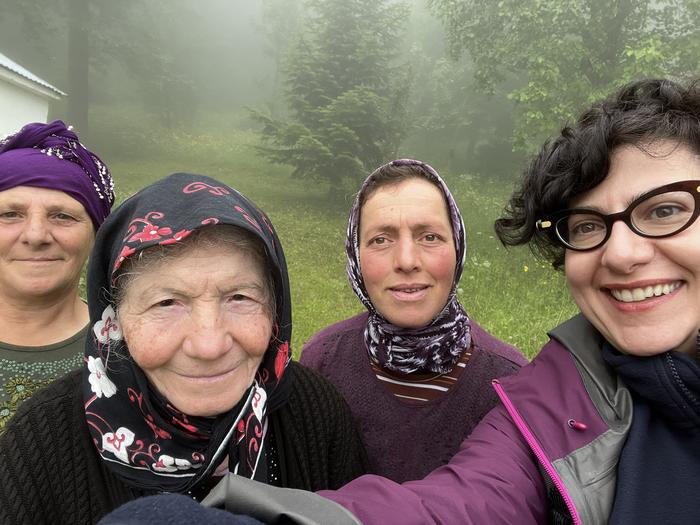Against all odds, a millennia-old variety of the Greek language has managed to survive into the 21st century. However, researchers are now warning that it could be the last chance to save this “linguistic goldmine” from extinction.
Romeyka is spoken by just a few thousand native speakers living in the mountainous villages of northeastern Turkey’s Trabzon region along the Black Sea coast. It doesn’t have a writing system, so it’s transmitted from generation to generation orally.
The language is a living relic from the time that Greece held a strong presence over the Black Sea in ancient times and the early Middle Ages. When the region became increasingly influenced by Islam and the Ottoman Empire, most people eventually shifted over to speaking Turkish. However, in the isolated hills around Trabzon, snippets of the ancient Greek language managed to live on among some Muslim communities.
“Conversion to Islam across Asia Minor was usually accompanied by a linguistic shift to Turkish, but communities in the valleys retained Romeyka. And because of Islamization, they retained some archaic features while the Greek-speaking communities who remained Christian grew closer to Modern Greek, especially because of extensive schooling in Greek in the 19th and early 20th centuries,” Ioanna Sitaridou, Professor of Spanish and Historical Linguistics at the University of Cambridge, said in a statement.

Professor Ioanna Sitaridou (right) with a 100-year-old Romeyka speaker in Turkey’s Trabzon region.
Image credit: Professor Ioanna Sitaridou
Romeyka has some significant differences from Modern Greek yet bears some traits that can be directly traced back to the archaic Greek language used in the Hellenistic Period (323 BCE to 32 CE).
One such linguistic feature of Romeyka is the use of infinitives, a form of a verb that can be used as a noun, adjective, or adverb. For instance, a speaker of Modern Greek would say “I want that I go”, instead of “I want to go.” All Greek dialects and variants used today have stopped using this infinitive, which is found in ancient Greek, except for Romeyka. This might seem like a subtle difference, but the example shows how Romeyka is the direct ancestor of Hellenistic Greek, as opposed to Medieval Greek which is the direct ancestor of Modern Greek.
“Romeyka is a sister, rather than a daughter, of Modern Greek,” added Professor Sitaridou.
Professor Sitaridou has spent the past 16 years studying Romeyka, hoping to gain a deeper understanding of the language and potentially save it from oblivion. Part of this time has been spent living within the Trabzon region alongside native speakers.
While the language has managed to persist for centuries, there are fears that it could soon be plummeted into extinction. Most speakers in Trabzon are over 65 years of age and fewer young people are learning the language, leaving it uncertain whether it will survive another round of intergenerational transmission.
Romeyka has also become the victim of socio-cultural stigma, as is often the case with minority languages. Turkish nationalism, a powerful force in Turkey that’s been rejuvenated under the rule of President Recep Tayyip Erdogan, would rather see the end of Greek being spoken within the nation’s borders. Likewise, hardliners in Greece see Romeyka as a “contaminated” form of their mother tongue that deters from their vision of a unified national identity.
As part of the effort to rescue the endangered language from extinction, Sitaridou has released a new Crowdsourcing Romeyka platform which allows members of the public to upload audio recordings of Romeyka being spoken.
“Speech crowdsourcing is a new tool which helps speakers build a repository of spoken data for their endangered languages while allowing researchers to document these languages, but also motivating speakers to appreciate their own linguistic heritage. At the same time, by creating a permanent monument of their language, it can help speakers achieve acknowledgement of their identity from people outside of their speech community,” explained Sitaridou.
Source Link: Linguists Warn A Millennia-Old Greek Language Could Soon Disappear